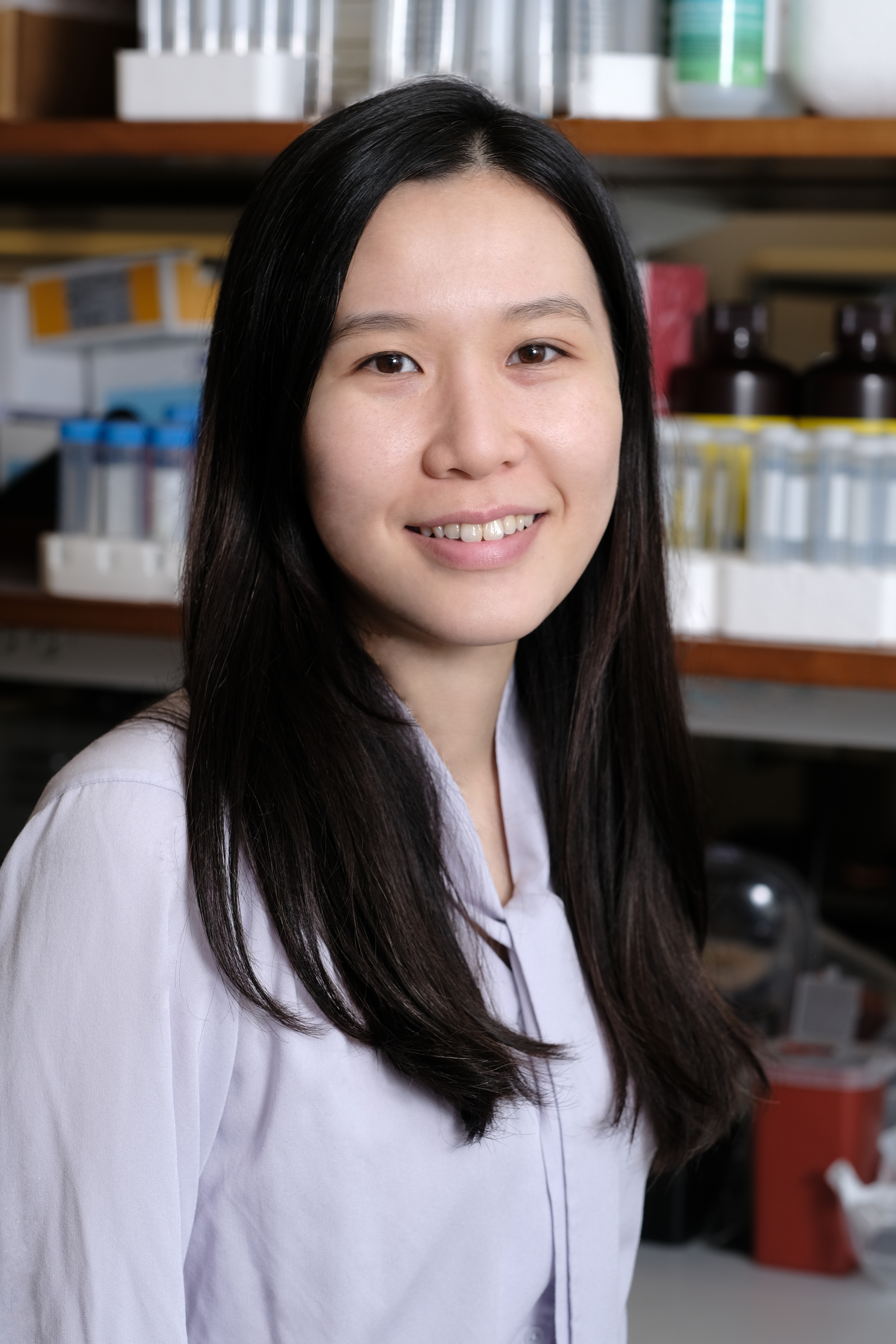
We are pleased to introduce our colleague Hui-Hsuan (Helen) Kuo, a Ph.D. Candidate in the Department of Pharmacology, who is being mentored by our Director Olivier Elemento, Ph.D. and our Ex Vivo Models Director M. Laura Martin, Ph.D.
We hope you enjoy learning more about her research interests and background!
Question: Can you please tell me about your work as a Ph.D. candidate in the Department of Pharmacology?
A: My projects are utilizing our unique pan-cancer patient-derived tumor organoids (PDTOs) resources in the Organoid Team at the Englander Institute for Precision Medicine. Our platform integrates innovative technologies like high-throughput drug screening (HTDS) and high-content images for precision oncology studies. My thesis work primarily focuses on studying the drug responses of tumors with defective DNA repair mechanisms. By performing HTDS on our PDTO collections, I can measure hundreds or thousands of drug responses at the same time. My goal is to link the drug response to cancer mutation profile and dig deep into the potential mechanisms to discover treatment strategies based on genomic status. I also study the interaction between cancer cells and cancer-associated fibroblasts in solid tumors. The complication between each cell type in tumors has made some cancers hard to treat. By studying the interactions, we may discover novel treatment strategies for cancer patients.
Q: What are your main research areas of interest?
A: Overall, my research interests lie in translational research that can benefit the scientific community and patient outcome population. My past research experience led me to the field of pharmacogenomics and precision medicine. I enjoy working in research that can improve current treatment strategies for cancer patients.
Q: How does the field of Pharmacology interact with precision medicine?
A: Pharmacogenomics is a field to study how our genome makeup may influence our drug response. Gene variance among us has shown to impact our disease susceptibility and affect our drug efficacy or toxicity. As each cancer is unique, we could develop tailored therapies for every person. It is the key to understanding the gene-drug interactions and study the interactions in precision medicine. If we could find the “right” treatment for everyone, we could give patients a better quality of life and reduce the potential toxicity side effects.
Q: How important has it been to have Drs. Elemento and Martin as mentors?
A: At this stage, I am still training to become an independent researcher. Olivier and Laura are both much more knowledgeable regarding the fields of organoid technologies and precision oncology. They provide guidance and directions to keep me on track for my thesis projects. They also have more connections so they will direct me where to find help when I need expertise that our lab is not specialized in. We often discuss challenges regarding experimental design and result interpretation. They often provide valuable feedback regarding my experiments and help me build up a scientific mindset.
Q: How has the Covid-19 pandemic affected you professionally?
A: I was pretty lucky that Covid-19 hit right between the time when I finished my rotation and officially joined the lab. None of my plans were affected much by the mandatory shut down of laboratories. Things were moving slightly slower in mid-2020 when labs are not allowed to have full capacity due to safety guidelines, but now almost everything has returned to normal for the labs. Even though some of the current experiments are slightly delayed due to global lab supply issues, I am grateful for not being affected too much compared to others.
On the other hand, I am also glad that more people are interested in my work as a biomedical researcher. I have gotten a lot of questions from friends and family about viruses and vaccines. Though I only had basic knowledge about the area, I was still able to explain basic concepts for them to understand. They started to appreciate our work as scientists. No research or work in biomedical science comes easy. I hope my work will benefit the world one day.
Q: What keeps you motivated?
A: The moment I see my result corresponding to my hypothesis would definitely be one of them, even though it does not happen very often (haha). I really like the research, the lab, and people around me, so I think that is what motivates me most of the time. I have to say it is true that the research life is mostly composed of the “figuring out what I did wrong” days or “what to do next” days. I usually try to look at things long term, so I am not too defeated by the negative results. It is also kind of fun to figure out what went wrong to improve my experimental techniques or scientific thinking.
Q: What do you like to do outside of work?
A: There is so much that New York City can offer. I personally like to enjoy different cuisines or explore different parts of the city with friends. I love the fact that the city never bores me. I can always find new things to do every weekend.
# # #
